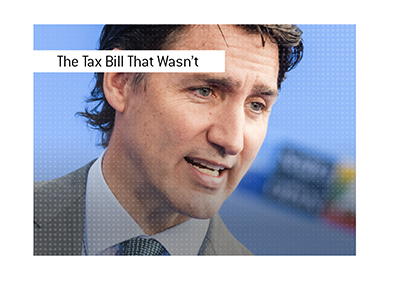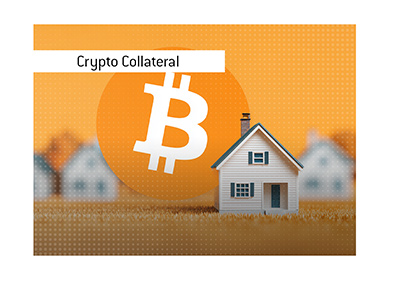Political Games, Closing of Government Led To Nixing of Capital Gains Tax Increase
 Did you know that the government of Canada collected BILLIONS of dollars for a tax increase that never actually happened?
Did you know that the government of Canada collected BILLIONS of dollars for a tax increase that never actually happened?In the year 2000, the Canadian Liberal government, led by Prime Minister Paul Martin, decreased the capital gains inclusion rate twice - once from 75% to 66.66% on February 27th, 2000, and again from 66.66% to 50% later in the year. The Liberal government at the time said that the changes were necessary to keep Canada competitive when it came to attracting investment dollars.
On June 25th, 2024, as part of their "tax fairness" agenda, Justin Trudeau's Liberal government increased the inclusion rate to 66.66% for individuals with over $250,000 in capital tax gains. For small businesses and corporations, the increase started from dollar zero.
Many Canadian individuals and businesses rushed to beat this deadline. Anybody who realized capital gains after this date would potentially be subjected to the new and higher inclusion rate.
There were many unhappy parties as a result of this change. Doctors, for instance, were told by the federal government years earlier that they could set up medical professional corporations in order to manage expenses and generate retirement savings. This was offered as an incentive to keep doctors in Canada, as many were being lured to the United States by higher wages and lower cost of living.
But wait! The changes actually never happened, and Canada's tax agency, Revenue Canada, collected billions of dollars for a tax increase that was never actually passed into law.
How did this happen?
In normal circumstances, the capital gains inclusion rate increase would have been included in the budget implementation bill.
Instead, in order to try and score political points and generate a class war, the Liberal government peeled off the increase into its own separate bill in order to force the Canadian opposition party, the Conservatives, to vote separately on it. "Let's see you publicly side with rich people", the Liberals said in Parliament.
The bill was voted on and passed.
There were some tweaks made to the proposed capital gains tax change after this vote happened, and another vote was scheduled to formalize this change and send the bill to receive Royal Assent, which is the final step in Canada when it comes to formalizing a bill into law.
This was the fall of 2024 - mid-October, to be exact. At this time, business in the Canadian Parliament ground to a halt, as the House of Commons adopted a Conservative motion that compelled the Liberals to turn over documents relating to a scandal involving Sustainable Development Technology Canada. The Conservatives and Liberals argued over parliamentary privilege, and the Conservatives essentially filibustered government until the Liberals turned over the documents. They never did, and no new business was done.
In December of 2024, Chrystia Freeland, the former Finance Minister and deputy Prime Minister of Canada, resigned from Cabinet, sending shockwaves through the Liberal party and fatally wounding the leadership of Justin Trudeau. Parliament adjourned for the year with the Liberals on the ropes.
Over the winter break, Prime Minister Justin Trudeau announced that he would be stepping down. While the Liberal Party conducted a leadership race to see who would replace him, the Canadian Parliament would be shut down for two months (yes, you can shut down Parliament in Canada if you are the Prime Minister).
This is called "proroguing" Parliament, and when you do that, any existing bills that haven't yet received Royal Assent essentially die. This included the increase in the inclusion rate of capital gains.
All of the major political parties in Canada, minus the Liberals, have promised to vote to bring down the LIberal government at the first opportunity when Parliament re-opens in March. This means that there will be an immediate election and the capital gains legislation won't be re-introduced (in a humorous pivot, Chrystia Freeland, who is fighting for leadership of the Liberal Party, says that she no longer supports the proposed increase to the capital gains inclusion rate).
-
The problem? Revenue Canada was collecting the higher capital gains tax from June 24th, 2024 onward. Here is what they had to say:
"Parliamentary convention dictates that taxation proposals are effective as soon as the government tables a notice of ways and means motion; this approach provides consistency and fairness in the treatment of all taxpayers."
So, even though the bill was never actually formalized into law, Revenue Canada was collecting the higher capital gains tax.
This created a great deal of confusion and the possibility of court challenges. The Liberal Party eventually said that the proposed change won't start until January of 2026, which will allow the new leadership (an election will likely be held in the spring of 2025) to decide whether or not they will move forward with the planned increase.
Anybody who paid the higher capital gains tax rate will be entitled to a refund.
-
This is how the Canadian government collected billions for a tax increase that never actually existed.
Filed under: General Knowledge



